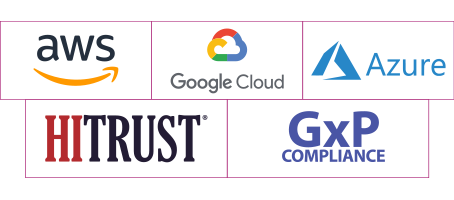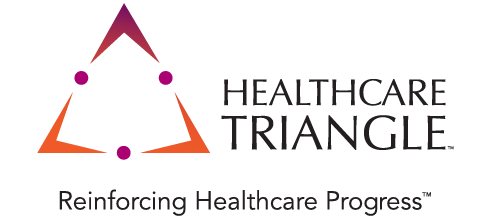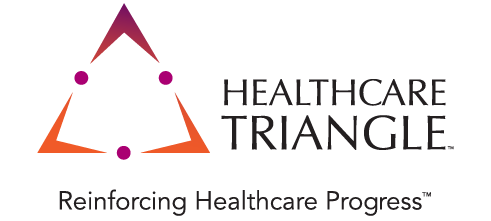Blockedge for Blockchain Transformation of Pharma & Life Sciences Industry
The pharmaceutical industry is riddled with challenges related to data accuracy, adhering to DSCSA requirements, and transparency affecting clinical trials, supply chains, and counterfeit drugs. Our blockchain infrastructure automation platform-based transformation services are poised to rewrite the rules of competition in the pharma industry, bringing greater transparency, security, and efficiency to processes.
The Time for Blockchain is Now
Creating end-to-end visibility in supply chain management and maintaining prescription drug traceability and integrity hold utmost importance in the pharmaceutical industry. Blockchain technology offers higher security and transparency, which are top priorities for the entire pharma industry. According to a Global Data poll, 29% of the respondents believe that supply chains could benefit the most from implementing blockchain, followed by the drug development process. These examples highlight why the pharmaceutical sector continues to move ahead and embrace blockchain, given its great potential.
With the looming deadline for compliance with the Drug Supply Chain Security Act (DSCSA), pharma leaders are anxious to put blockchain to work on the most challenging problems facing their industry. Healthcare Triangle's compliant blockchain infrastructure and services, Blockedge, helps pharmaceutical companies bring drugs to market faster, at lower cost, manage supply chain processes and comply with the DSCSA regulations.
Blockedge is a blockchain infrastructure automation platform that uses zero-coding to not only accelerate blockchain adoption, but also manage the ongoing network infrastructure. It enables pharmaceutical companies to choose from multiple cloud providers and blockchain nodes to deploy your unique blockchain use cases via intuitive user interfaces.
Pharmaceutical Blockchain Market Worth
US $25,619.6 Million in 2030
The Drug Supply Chain Security Act with Blockchain
By 2023, pharmaceutical companies need to adhere to the Drug Supply Chain Security Act (DSCSA), which calls for tracking, producing, and dispensing drugs from raw materials. The DSCSA Act would also require supply chain leaders to adopt an "interoperable system" to track drugs across the supply chain. As per the recently released PDG paper, partners will require robust systems before the implementation date. These systems will then be populated with tens of trillions of records, which will have to be searched and analyzed when identifying and tracing the drug packages. Many leaders in the pharma space are feeling the operational burden and the need to rethink their drug supply chain as they seek to comply with the DSCSA deadline.
We hear about these struggles, and our end-to-end blockchain infrastructure platform, Blockedge, helps pharmaceutical companies overcome DSCSA interoperability pain points while ensuring data integrity and maintaining privacy across the supply chain process. We make sure that you stay in compliance with DSCSA and meet the demands of your customers throughout the drug supply chain.

Blockedge integrates seamlessly with your existing IT infrastructure while ensuring hassle-free platform integration and automated network management. There is no coding prerequisite needed to run and manage your blockchain nodes on our UI-driven platform. We work along with you and ensure your supply chain is DSCSA compliant.
Here’s Why Blockchain is a Game Changer for the
Pharma Industry
Enhanced Drug Supply Chain Visibility
Blockchain technology adds undeniable value in tracking, monitoring, and overcoming issues in pharmaceutical supply chains. The effective use of blockchain in the drug supply chain ensures an auditable trail to safeguard drug provenance.
Due to its immutability, and traceability, blockchain offers accurate end-to-end tracking and monitoring of the drug supply chain and provides a verifiable and auditable information account. Blockchain helps track unique digital IDs assigned to product units and identifies the location of counterfeit drugs in seconds, not days.

Blockchain combined with IoT sensors allows manufacturers to monitor the temperature during the transport and storage of COVID vaccines. In addition, blockchain has potential applications in warehousing, delivery, payment, and everything in between.

Counterfeit Drug Prevention
As the pandemic continues, pharmaceutical companies face new challenges, including quickly developing drugs and vaccines. Meanwhile, pharma leaders are fighting with managing consent and keeping individual patient medical data secure and transparent between those involved in the clinical trial.
Blockchain offers a degree of transparency and trust that is often missing when two organizations attempt to share data traditionally. Because blockchain’s distributed ledger technology disintermediates data exchange, companies no longer have to compete around ownership.
Blockchain accelerates drug development and streamlines the clinical trial processes due to its potential to improve interoperability and enhance data sharing. The technology allows patients to aggregate their data from different sources more efficiently and share what they choose to with their doctors. Our blockedge platform offers a solution to more easily aggregate health data in a secure, trusted, automated, and error-free way. We make sure the clinical data is available in real-time across a unified platform giving end-to-end transparency.
Blockchain In Intellectual Property
Intellectual Property Rights (IPR) helps pharma companies identify, plan, commercialize, and protect the invention of new drugs. Patents provide the sole right to market drugs and prevent other companies from manufacturing, selling, and making the drugs for 20 years.
Thus, IP is a significant asset in drug development. But the process of IP through filing patents is complex, expensive, and time-consuming. Loss of crucial patient medical data may cause huge losses of investments in the new drug. Blockchain can help significantly in the creation of IP assets while also protecting data confidentiality.

Uploading IP documents in a distributed ledger rather than a traditional database could turn them into smart IP documents. The uploaded IP documents are encrypted to prevent unauthorized access, and a record is created on the ledger. The generated encryption key can be shared on the blockchain system. This prevents conflict regarding who created the document and when while maintaining confidentiality, legality, security, and trust at the same time.
Developing a Future-Forward Digital Strategy in Life Sciences
Our whitepaper focuses on cloud computing, data analytics, and blockchain—three pillars for digital transformation.
Ensuring Data Security and Compliance
Blockchain's key features, including immutability, distributed nature, and transparency provide the pharma companies a more reliable way to add governance within the supply chain and ensure patient safety and compliance.

Multi-Cloud Blockchain Capabilities
With 12+ years of expertise in deploying and managing public, private, and hybrid cloud setups from leading cloud service providers, we help you:
- Run a blockchain network across public and private clouds
- Deploy blockchain components, and create channels
- Build and scale your networks
Blockchain Transformation
Our blockchain transformation platforms, accelerators and services can help each of our stakeholders build a collaborative future, enabling patient safety and regulatory adherence by ensuring a chain-of-custody log at the individual drug level at every point in the value chain.
Key Solutions from Blockedge
- Blockchain consulting and advisory
- Platform-enabled Blockchain network deployment
- dApps and Smart Contract development and Implementation
- Accelerators-enabled Blockchain – IT integrations
- Global network operations and management
Connect with a Blockchain Expert
No matter where you are on the blockchain journey, our experts can help you take the next step.
Frequently Asked Questions
Blockchain Pharma refers to the application of blockchain technology in the pharmaceutical industry. This technology enhances drug traceability, ensures regulatory compliance, improves supply chain transparency, and combats counterfeit drugs.
Blockchain technology can benefit the pharmaceutical industry by providing a secure and immutable ledger for tracking drugs throughout the supply chain. This ensures transparency, reduces the risk of counterfeit drugs, enhances patient safety, and ensures compliance with regulatory standards.
Blockchain improves drug traceability by creating an immutable record of every transaction and movement of a drug within the supply chain. This allows stakeholders to track the origin, manufacturing, and distribution of drugs in real-time, ensuring their authenticity and safety.



